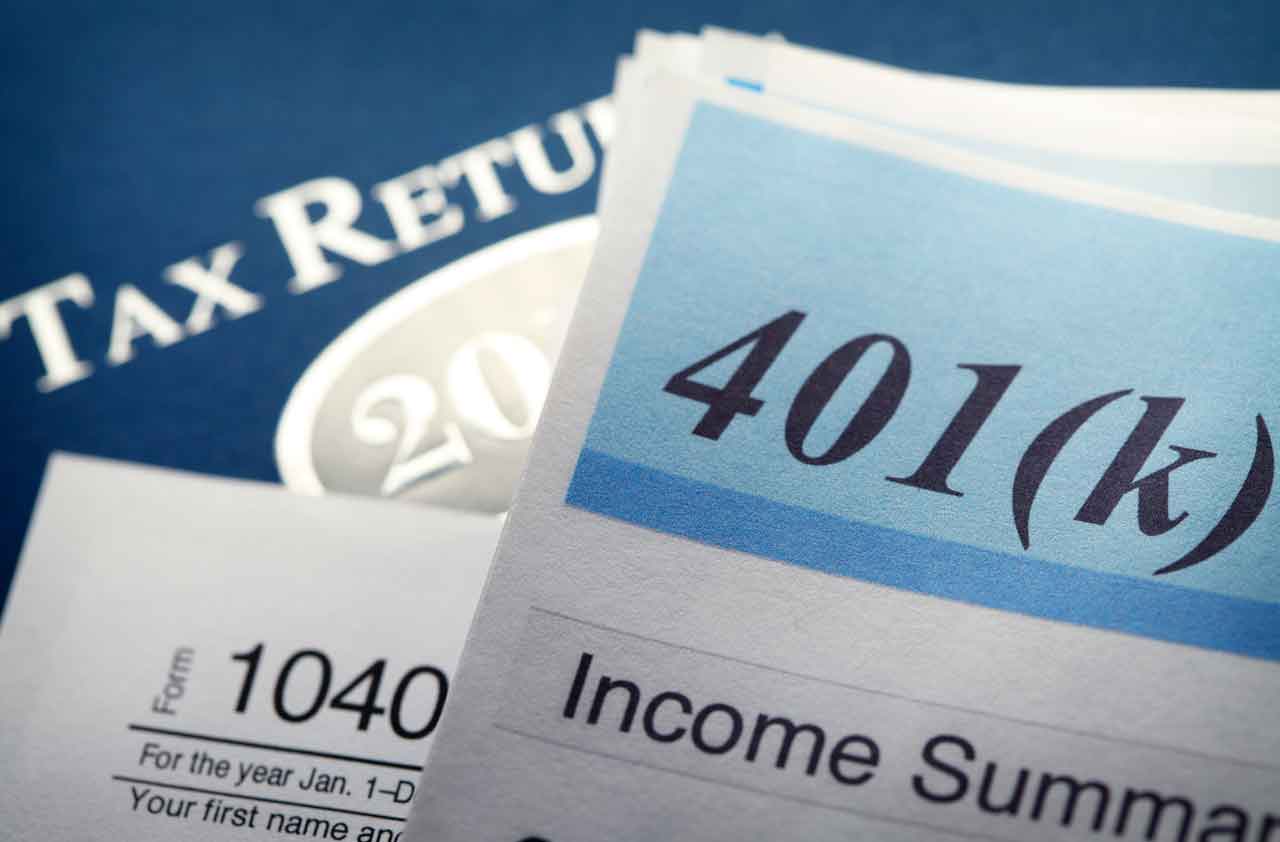Average Joe on a Fund Board?
Most investors likely can't land a seat on a mutual fund's board of directors but can influence decisions by attending shareholder meetings.

Profit and prosper with the best of Kiplinger's advice on investing, taxes, retirement, personal finance and much more. Delivered daily. Enter your email in the box and click Sign Me Up.
You are now subscribed
Your newsletter sign-up was successful
Want to add more newsletters?

Delivered daily
Kiplinger Today
Profit and prosper with the best of Kiplinger's advice on investing, taxes, retirement, personal finance and much more delivered daily. Smart money moves start here.

Sent five days a week
Kiplinger A Step Ahead
Get practical help to make better financial decisions in your everyday life, from spending to savings on top deals.

Delivered daily
Kiplinger Closing Bell
Get today's biggest financial and investing headlines delivered to your inbox every day the U.S. stock market is open.

Sent twice a week
Kiplinger Adviser Intel
Financial pros across the country share best practices and fresh tactics to preserve and grow your wealth.

Delivered weekly
Kiplinger Tax Tips
Trim your federal and state tax bills with practical tax-planning and tax-cutting strategies.

Sent twice a week
Kiplinger Retirement Tips
Your twice-a-week guide to planning and enjoying a financially secure and richly rewarding retirement

Sent bimonthly.
Kiplinger Adviser Angle
Insights for advisers, wealth managers and other financial professionals.

Sent twice a week
Kiplinger Investing Weekly
Your twice-a-week roundup of promising stocks, funds, companies and industries you should consider, ones you should avoid, and why.

Sent weekly for six weeks
Kiplinger Invest for Retirement
Your step-by-step six-part series on how to invest for retirement, from devising a successful strategy to exactly which investments to choose.
I'm an average investor with less than $25,000 in any given mutual fund. Once again I'm being asked to elect a fund's board of directors. I've never met these people, and they haven't told me how they would represent me as a shareholder. So I'm wondering how I can serve on the board. I probably know the average investor better than they do.
It's no easy feat for the average Joe to land a seat on a fund's board of directors. Much depends on who you know. "If you have the background and knowledge of the industry, and you can bring something to the table, of course you can serve on the board," says Neil Hennessy , president and portfolio manager of Hennessy funds. "But I've been in this industry for 28 years, and nobody's ever asked me to be on a board of directors."
Hennessy's board includes a retired executive from the American Automobile Association and the sheriff of Marin County, Cal. "The sheriff has several hundred people under him and manages a budget," says Hennessy. "You don't get into such a leadership position without honesty and ethics."
From just $107.88 $24.99 for Kiplinger Personal Finance
Become a smarter, better informed investor. Subscribe from just $107.88 $24.99, plus get up to 4 Special Issues

Sign up for Kiplinger’s Free Newsletters
Profit and prosper with the best of expert advice on investing, taxes, retirement, personal finance and more - straight to your e-mail.
Profit and prosper with the best of expert advice - straight to your e-mail.
By law, the majority of a fund's directors must be independent, with no official connection to the management company. Remaining board members may be, and often are, insiders from the management company.
Virtually all fund boards have a nominating committee to which you can send a résumé, says Bob Dorsey, of Ultimus Fund Solutions, which provides services for small and midsize funds. "Take a look at the current composition of the board and write a letter explaining your own qualifications," says Dorsey.
Directors are in charge of hiring (and firing) fund managers, setting fees and watching out for shareholders' interests. It makes sense that they should have expertise in financial services and "be up to speed on things like corporate governance and Sarbanes-Oxley," says Nell Minow, co-founder of the Corporate Library, which focuses on governance issues. "That's more important than understanding what it's like to be an investor."
As an investor, you can still influence your fund's business operations by attending shareholder meetings or voting for board members by proxy.
Profit and prosper with the best of Kiplinger's advice on investing, taxes, retirement, personal finance and much more. Delivered daily. Enter your email in the box and click Sign Me Up.

As the "Ask Kim" columnist for Kiplinger's Personal Finance, Lankford receives hundreds of personal finance questions from readers every month. She is the author of Rescue Your Financial Life (McGraw-Hill, 2003), The Insurance Maze: How You Can Save Money on Insurance -- and Still Get the Coverage You Need (Kaplan, 2006), Kiplinger's Ask Kim for Money Smart Solutions (Kaplan, 2007) and The Kiplinger/BBB Personal Finance Guide for Military Families. She is frequently featured as a financial expert on television and radio, including NBC's Today Show, CNN, CNBC and National Public Radio.
-
 Nasdaq Slides 1.4% on Big Tech Questions: Stock Market Today
Nasdaq Slides 1.4% on Big Tech Questions: Stock Market TodayPalantir Technologies proves at least one publicly traded company can spend a lot of money on AI and make a lot of money on AI.
-
 Should You Do Your Own Taxes This Year or Hire a Pro?
Should You Do Your Own Taxes This Year or Hire a Pro?Taxes Doing your own taxes isn’t easy, and hiring a tax pro isn’t cheap. Here’s a guide to help you figure out whether to tackle the job on your own or hire a professional.
-
 Trump $10B IRS Lawsuit Hits an Already Chaotic 2026 Tax Season
Trump $10B IRS Lawsuit Hits an Already Chaotic 2026 Tax SeasonTax Law A new Trump lawsuit and warnings from a tax-industry watchdog point to an IRS under strain, just as millions of taxpayers begin filing their 2025 returns.
-
 It’s Not Too Late to Boost Retirement Savings for 2018
It’s Not Too Late to Boost Retirement Savings for 2018retirement Some retirement accounts will accept contributions for 2018 up until the April tax deadline.
-
 Making the Most of a Health Savings Account Once You Turn Age 65
Making the Most of a Health Savings Account Once You Turn Age 65Making Your Money Last You’ll face a stiff penalty and taxes if you tap your health savings account for non-medical expenses before the age of 65. After that, the rules change.
-
 Using a 529 Plan for High School
Using a 529 Plan for High School529 Plans You’re now able to withdraw up to $10,000 tax-free from a 529 plan each year for K-12 tuition.
-
 Reporting Charitable IRA Distributions on Tax Returns Can Be Confusing
Reporting Charitable IRA Distributions on Tax Returns Can Be ConfusingIRAs Taxpayers need to be careful when reporting charitable gifts from their IRA on their tax returns, or they may end up overpaying Uncle Sam.
-
 Ex-Workers Get More Time to Repay 401(k) Loans
Ex-Workers Get More Time to Repay 401(k) Loans401(k)s If you leave your job while you have an outstanding 401(k) loan, Uncle Sam now gives you extra time to repay it -- thanks to the new tax law.
-
 The 11 Most Valuable Personal-Finance Lessons of 2018
The 11 Most Valuable Personal-Finance Lessons of 2018Financial Planning How to reduce taxes and medical bills, help the next generation save for retirement and protect against identity theft were some of the issues on readers’ minds in 2018.
-
 The Rules for Making a Tax-Free Donation from an IRA
The Rules for Making a Tax-Free Donation from an IRAIRAs Making tax-free gifts to charity from an IRA is gaining in popularity among older investors, thanks to changes under the new tax law. Here’s what you need to know to make a qualified charitable distribution.
-
 New Rules on Capital Gains
New Rules on Capital Gainsinvesting Rates didn’t change, but they’re pegged to your income instead of your tax bracket.